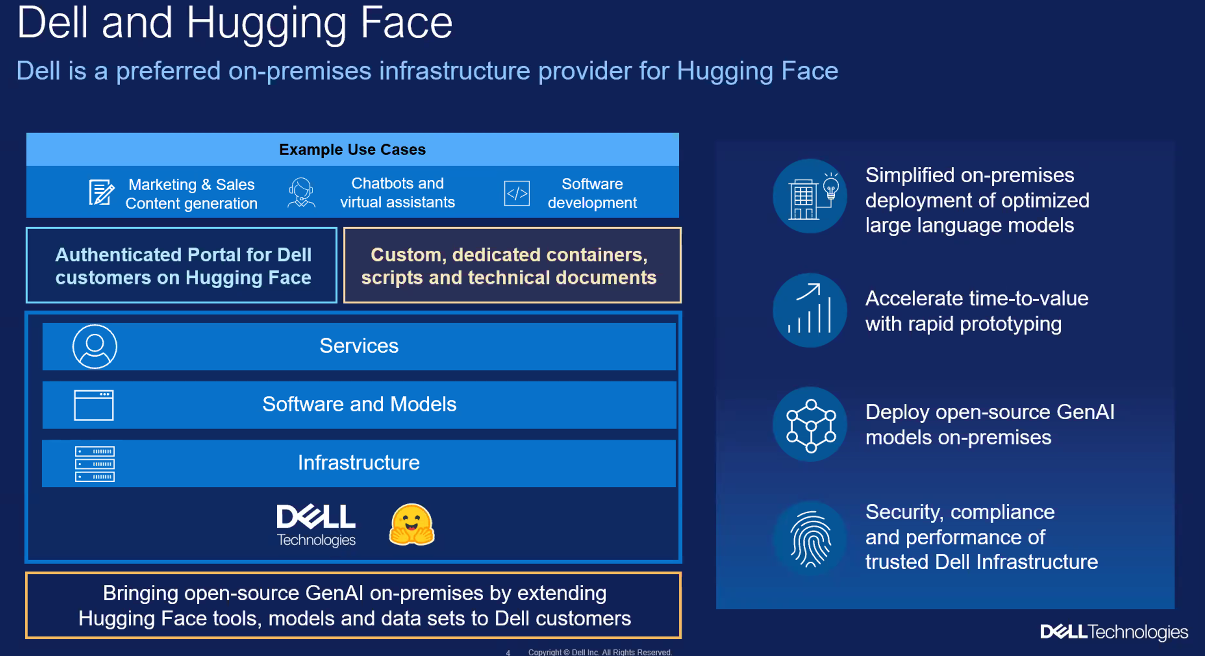Dell Technologies and Hugging Face are teaming up to target on-premises generative AI deployments to make the jump from enterprise proof-of-concepts to production easier.
While cloud hyperscalers have dominated the generative AI discussion, enterprises are wary of costs as well as protecting data and see hybrid approaches more viable. In addition, CXOs are being asked by boards of directors to produce generative AI projects, but the move to production use cases is challenging. Vendors are scrambling to provide a generative AI magic bullet with fun names, domain specific LLMs and add-ons that add up, but the reality has been more challenging.
"Customers are reporting--and we observe this every day--that they're frustrated by the complexity associated with building AI that includes applications in closed ecosystems," said Dell Technologies' Matt Baker, Senior Vice President of AI Strategy. "If you recall with the era of big data, there was a real challenge progressing from proof of concept to production."
- Why generative AI workloads will be distributed locally
- Software development becomes generative AI's flagship use case
- Enterprises seeing savings, productivity gains from generative AI
The theory behind the Dell and Hugging Face partnership is that AI is likely to go to where the data lives--mostly on premises--instead of the other way around. Dell has been publishing validated designs that include storage, servers and accelerators.
Jeff Boudier, Head of Product and Growth at Hugging Face, added that "going from a model to a solution you can deploy is a completely different ballgame."

Under the partnership, Dell customers will be able to select open-source models for use cases on Hugging Face, pick optimized infrastructure for that workload and get help tuning models within a container. The model from there is on-premises and owned by the customer.
Boudier added that enterprises are looking to take control of their machine learning and AI destiny. "The only way to do that is to become a builder," he said.
The two companies will also aggregate libraries, data sets and tutorials on training. Baker said that there will be templates and models designed for specific outcomes. Some models will be trained for use cases and an enterprise would then couple it with proprietary data in a container for tuning.
Initially, Dell Technologies and Hugging Face will focus on PowerEdge and data center gear designed for models. Baker, however, noted that workstations will also be included. The Dell and Hugging Face connection will also be available through Apex.


